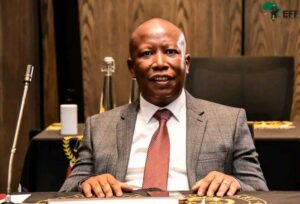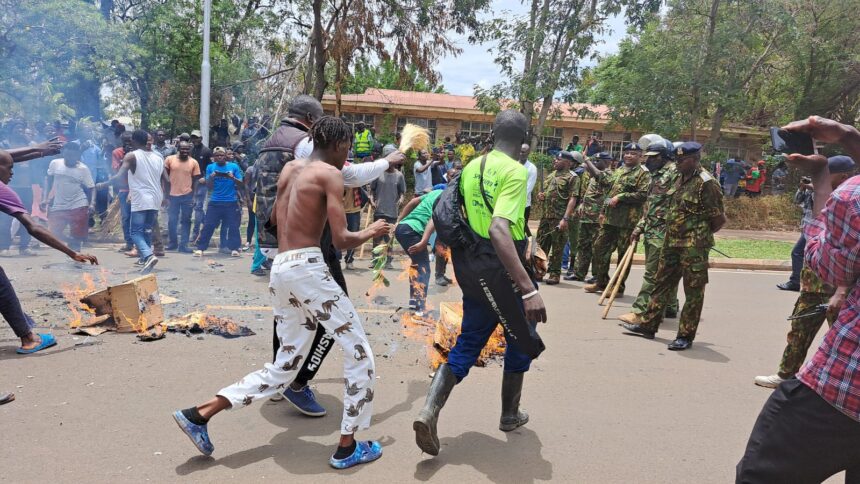March 20th looks to be a very restive day for Africa as opposition leaders in five African countries prepare to hold major protests against governments in power. Kenya, Nigeria, South Africa, Senegal and Tunisia are all preparing for a major showdown between opposition groups and their governments.
Political tension is rife in Kenya as longtime opposition leader Raila Odinga is calling for mass action in response to the high cost of living even as he pursues what he claim to be his stolen victory. While donned in military regalia, he announced the start of nation wide protests which will culminate in a mega procession in the capital Nairobi on 20th March.
Mr Odinga has been holding rallies across the nation as he castigated the Kenya Kwanza regime which he terms as illegitimate.
President William Ruto was announced winner of the August 8th 2022 elections, results which were disputed by the former Prime Minister in the Supreme court. The Supreme Court upheld the election and Ruto was sworn in as president but Mr Odinga has refused to recognize him a president insisting that he won the vote.

Another restive African powerhouse South Africa is also on edge as Economic Freedom Fighters (EFF) leader Julius Malema has announced a total national shutdown on 20th March.
Malema is seeking to pressure South Africa president Cyril Ramaphosa to resign over corruption and economic mismanagement.
The protest action is expected to be held on Monday with the EFF warning businesses to close their doors or risk being looted.
The EFF said the countrywide demonstrations will be the “mother of all shutdowns” and is calling for President Cyril Ramaphosa to resign.
In Nigeria, opposition candidate Atiku Abubakar has since disputed the February 25th election in which the sitting president’s choice Bola Tinubu was declared winner.
On Monday, members and supporters of the Peoples Democratic Party took to the streets to protest the recently announced results of the presidential election.
Led by Abubakar Atiku, who finished second in the polls, the opposition demonstrators walked to the Independent National Electoral Commission’s (INEC) offices in Abuja and submitted a petition proclaiming electoral fraud.
“The provisions of the current electoral law have been completely contravened,” Atiku said.
“This protest is going to continue for a very long time,” Atiku said, “either every day or every other day.”
The demonstration, dubbed “black uniform,” saw a majority of the participants wear black clothes, including Atiku as he called for a new election.
In Senegal, things are not rosy for president Macky Sall as opposition candidate Ousmane Sonko gathered his suppporters in the capital, Dakar, on Tuesday for a three-day protest to show support for the aspiring presidential candidate, who faces a libel case set to resume this week.
The protests are expected to continue as tension is growing due to the speculation that Macky Sall shall be running for a third term in elections slated for next year. He has neither confirmed nor denied these allegations even as he tried to suppress competition.
Sonko at 48 offers the greatest challenge to Sall at 61 years of age as he has gathered much support from majority of disillusioned urban youths.
Further North in Tunisia ,powerful UGTT labour union rallied in the capital on Saturday in what appeared to be the biggest protest yet against President Kais Saied, staging a show of strength after his recent crackdown on opponents.
Many thousands of protesters filled Habib Bourguiba Avenue, the main street in central Tunis, holding banners that read “No to one-man rule” and chanting “Freedom! End the police state”.
These events in the five African nations will be closely monitored by the international community as they have a way of influencing others to follow suit. Just like the revolution that started in Tunisia in 2011 gave birth to the Arab Spring which toppled many governments in North Africa and the Middle East


Leave a Reply